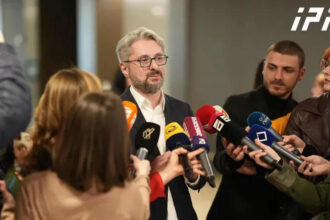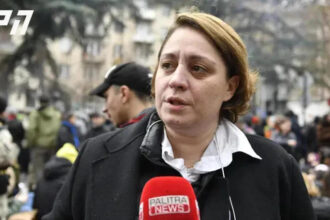Analysts urge the EU to implement targeted customs duties on Russian LNG imports as Russia‘s military spending swells up to almost 8% of GDP
The Russo-Ukrainian War is now in its third year. The international community faces an important challenge: how to effectively counter Russia’s continued aggression while supporting Ukraine’s defense efforts. Despite numerous diplomatic initiatives and sanctions, Russia continues its war machine by selling fossil fuels, notably liquefied gas (LNG) to European countries.
Experts from the International Center for Ukrainian Victory have researched the possibility of a “war tax” for Russian LNG imports into the European Union in response to this persistent problem. This measure is intended to strike a compromise between maintaining Europe‘s security of energy and reducing financial resources available for the Russian war effort.
This article examines the current state and future of Russia’s war economic, its energy exports to Europe and the possible impact of implementing war tax on Russian Liquefied Natural Gas (LNG).
Key Points:
* Russia’s war against Ukraine is possible because of its larger economy and its population.
* The Kremlin is now a war economy and has increased military spending.
* Despite sanctions against Russia, the country still earns a substantial amount of revenue from the export of fossil fuels, especially LNG.
* The EU continues to be a major consumer of Russian LNG and indirectly funds Russia’s war effort.
* A proposed “war-tax” on Russian LNG imported to the EU could limit Russia’s profits and support Ukraine.
* The war tax will be implemented as a duty on imports, with the proceeds going to Ukraine.
* This measure is viewed as an intermediate step before a possible full ban on Russian imports of energy.
Read More @ euromaidanpress.com




